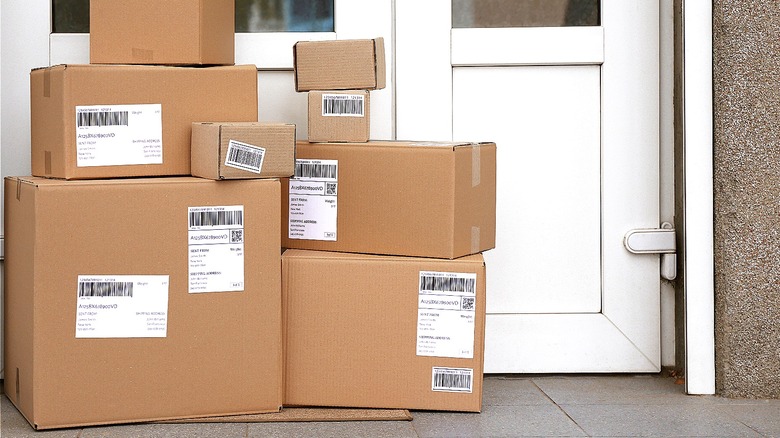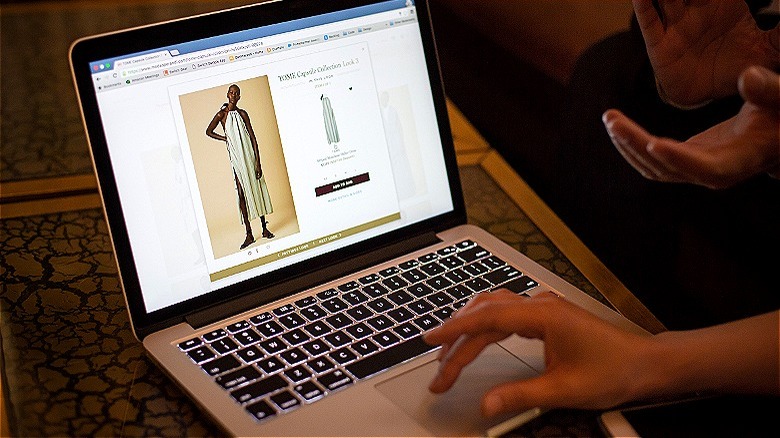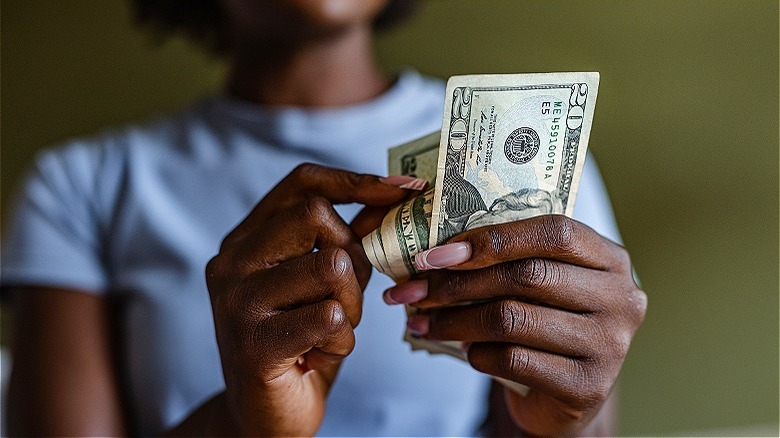Stop Your Compulsive Spending Instantly With One Simple Tip
In 2022, the average U.S. consumer spent more than $300 a month on impulse purchases. From clothing to groceries to household goods, it's easy to add small things to your cart without thinking about the bigger financial picture down the road. While inflation has forced many Americans to tighten their belts, the temptation to treat yourself remains. This said, impulse buying in 2023 is down when compared to previous years (with 38% of respondents to a Slickdeals/OnePoll survey reporting they've decreased impulse spending in 2023), yet the average person is still impulsively spending $151 a month.
Curbing your spending can be difficult, especially if you've made a habit of impulse buys. Online shopping can make it even harder to avoid sales, ads, and targeted promotions that might appeal to your need to shop. This, combined with the growth of in-app purchasing options (not to mention influencer marketing) throughout most major social media platforms makes it harder than ever to avoid online spending.
While budgeting, keeping credit limits low, and even avoiding services such as buy now, pay later can all help to ensure your spending doesn't lead to debt, there's another, even smaller, tip that might help you cut down on those late-night purchases. You might be surprised to learn that something as simple as removing your saved credit card information on websites can make a huge difference to your impulsive spending habits.
Curbing your spending habits
Keeping credit card information within a website removes some of the obstacles that might help reduce your spending. It might sound silly, but there is something to be said for the amount of time it takes to find and enter your card information on a website. Not only does this process give you more time to think about your purchase, but it also physically mimics the act of handing money over to a person/store.
If you're someone who finds joy in shopping and in treating yourself, it's important to realize that you, and many consumers, are experiencing a very real psychological boost. According to research published in the Journal of Consumer Psychology, making purchases helps people not only feel instantly happier but can also fight lingering feelings of sadness. Not only does shopping add a little boost to our mood, but it can also help us feel more in control of our lives and environment. While this adds credence to the idea of retail therapy, it is also, unfortunately, being manipulated in online retail environments. It would seem merchants have created seamless online shopping experiences that are tailor-made to exploit the mood-boosting effects of a purchase.
Other tips to try
As exciting as the instant gratification of online shopping can be, it can be a slippery slope when it turns excessive. If you find your compulsive shopping is interfering with your expenses, it might be worth exploring new budgeting behaviors. Not only can new tips and tricks be a great way to test out how best to curb your spending, but they can also help you stick to your budget goals. Cutting down on online purchases in favor of in-person shopping can be a helpful, simple way to slow down your spending.
With that in mind, the convenience of shopping online often makes it the best option for consumers, so implementing a 30-day rule on online purchases can help you to weed out impulse purchases. By waiting 30 days, you can determine if the item you were looking to buy is something you still really want, or if it was only exciting in the moment.
As for those looking to curb in-person shopping habits, try prioritizing cash and/or debit cards for expenses rather than credit cards. By rooting your spending in real money, rather than credit, you can help yourself stick to certain spending amounts. This can be an especially useful strategy at stores where you tend to regularly overspend. Whether that's your favorite clothing or grocery store, going in with a set amount of cash (and leaving your credit cards at home) can force you to curb spending and/or prioritize what items are most important to you.


